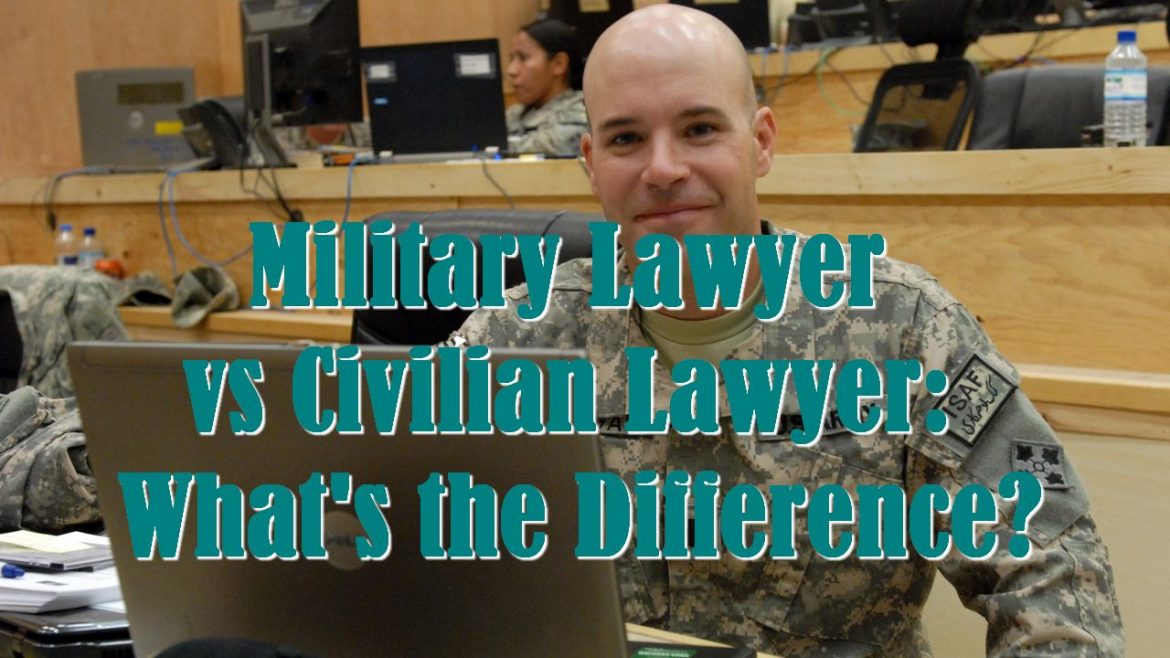Military Lawyer vs Civilian Lawyer: What’s the Difference?
Did you know that people in the military have the choice of having a military lawyer to represent them in court? Unlike civilians who are represented in court by either a public lawyer or an attorney. Different rules and procedures also come in handy when handling an offense committed by someone in the military. However, service members can have both military and civil lawyers present them in court while civilians can only have a civil lawyer handle their case. Service members have their cases handles by the military law when they violate martial laws and commit crimes such as failure to obey command, misconduct, rebellion, or sedition.
Court
 Cases handled by the military have different court rules and conducts from those handled by the civilian court. Civil court orders are followed in a civilian court when handling the case while in a military court military process is described. In military court, conduct known as the Uniform Code of Military Justice of followed laid down by a judicial panel in the military
Cases handled by the military have different court rules and conducts from those handled by the civilian court. Civil court orders are followed in a civilian court when handling the case while in a military court military process is described. In military court, conduct known as the Uniform Code of Military Justice of followed laid down by a judicial panel in the military
Law
 Lawyers who handle military cases are trained to service members as well. They form a panel known as the Judge Advocate General Corps which is a group of lawyers. Whenever another service member has an active case, they chose someone from the panel to represent them in court.
Lawyers who handle military cases are trained to service members as well. They form a panel known as the Judge Advocate General Corps which is a group of lawyers. Whenever another service member has an active case, they chose someone from the panel to represent them in court.
Unlike military lawyers, civil lawyers have different specialties in handling different cases. They can either be private lawyers or public lawyers depending on their areas of specialty.
Appeal
There are different procedures when it comes to appealing to both civil and military courts. In case you are not satisfied with the verdict made in court as a civilian, you can apply for another hearing or change of verdict made by the judge. However, for military courts, a chain of command has to be followed to determine whether your case can be appealed or not. Different officials are engage depending on the case at hand.
Jury
 While a civilian court is made up of 12 Jurors that have to be peers when deciding a case at hand, the military court is made up of a smaller number. This ranges from 3 to 12 jurors. Additionally, when a civilian gets to meet the jury in a court or when defending themselves, a service member can request a list to see the persons in the jury. While a civilian jury gives a verdict for every crime committed by the defendant, the jury gives one sentence for all the crimes committed by the defendant in a military court.
While a civilian court is made up of 12 Jurors that have to be peers when deciding a case at hand, the military court is made up of a smaller number. This ranges from 3 to 12 jurors. Additionally, when a civilian gets to meet the jury in a court or when defending themselves, a service member can request a list to see the persons in the jury. While a civilian jury gives a verdict for every crime committed by the defendant, the jury gives one sentence for all the crimes committed by the defendant in a military court.
In conclusion, an individual active in the military can get to choose who handles their case in court either a military lawyer or a civilian lawyer. This however is limited to the type of crime committed and the likely consequences for the action. Military courts are more suitable to handle crimes committed by service members because they offer a slightly fair trial compared to civil courts. In addition, a judge can offer assistance to the defendant especially if they are not in a stable state of mind or are under substance abuse.

